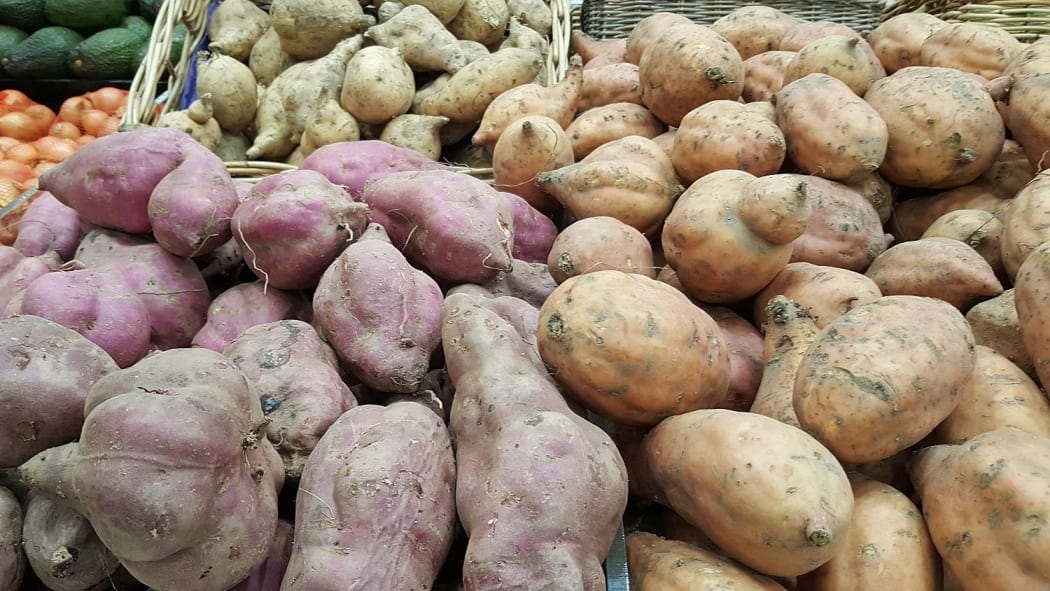
. Photo: RNZ / Alison Ballance
Northland's kumara growers prefer hot dry conditions any day to wet cold conditions - having said that it's been nearly two months without rain and enough's enough. It's expected the yield will be down by 15 percent if not more. Kumara size will be down too - they haven't had the rain to fill out. On a good year a plant might grow six kumara and half will be a decent size - that won't be the case this year. The main harvest runs from the last week in February until early May - so if rain comes now there is a chance later kumaras will size up. On Northland farms it's still far too dry..
Around Pukekohe, warm dry days have continued and growers have maintained the costly task of irrigating outdoor crops. Some rain is forecast for Saturday so it's hoped it'll be significant as there's more fine weather to follow.
Waikato had 0.6 millimetres of rain on Wednesday - which was a complete waste of time. It's still incredibly dry and farmers are feeding out a lot of supplement. They're moving to once a day milking and production is dropping. By the end of next week some tough decisions will need to be made about when to dry off. Farmers need to make sure there's enough supplement in the bag to get them through the next few months and while they might be tempted to keep on milking, milking cows eat a lot more than those that are dry. Maize cobs aren't filling out in the dry so the yield and nutritional value of the crops will be down. Some farmers might decide to harvest it early to salvage what they can.
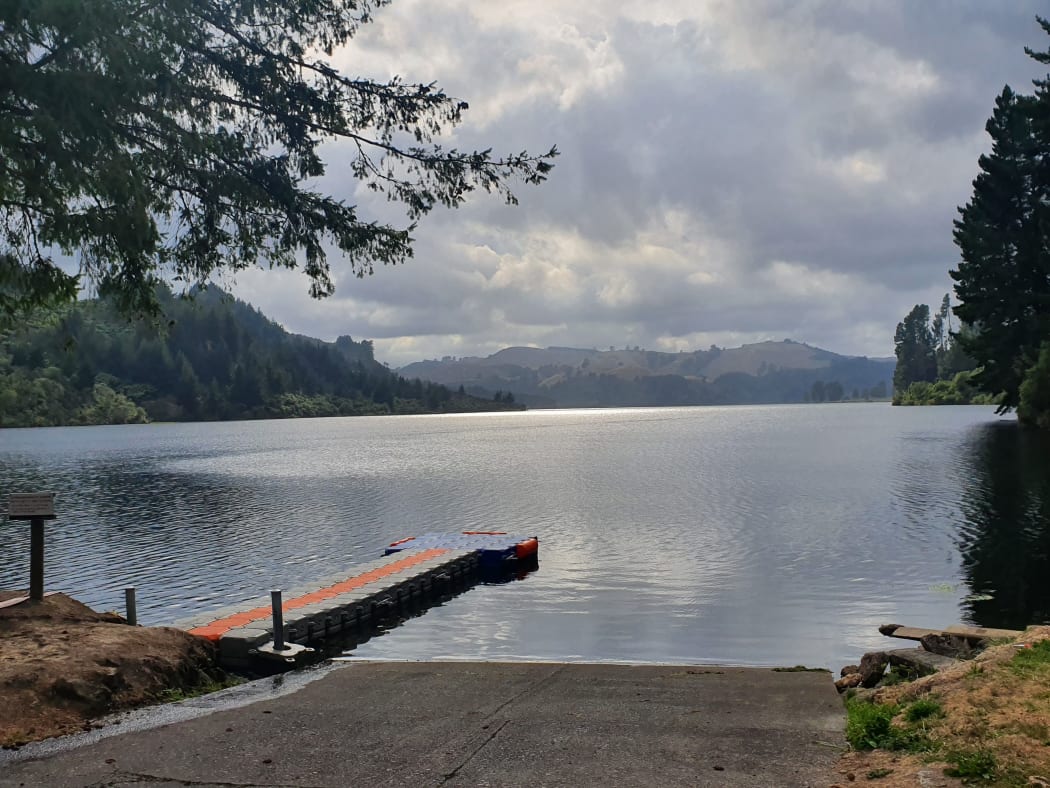
Photo: RNZ/Carol Stiles
Parts of Bay of Plenty had 6.5 millimeters of rain this week - and everyone's looking skyward in the hope forecast rain does arrive. Pasture in the hills will grow if rain comes soon. Dairy farmers are pregnancy testing and are wanting to get empty cows off to the works to preserve any feed they have - but meat companies are still rationing space.
In Taranaki even summer safe farms at higher altitudes and in the centre of the region are dry. Farmers are scanning a critical eye over their feed reserves trying to work out how much they need to set aside for winter.
Gisborne's been hot. The grape harvest is underway. There's been a lot of heat units for grapes and few problems with fungi. Sweetcorn and squash are also being harvested . Stock are in great order - farmers seem to be able to find space at the works for lambs and bulls but not for ewes and prime cattle.
Hawkes Bay has moved beyond the normal Hawkes Bay dry. It's even dry in the foothills. Stock water is getting short in places. Some stream flows have dried up and some dams are low on water. If you've been at the beach it's been perfect weather - day after day of blue skies and temperatures in the late 20's, early 30s.
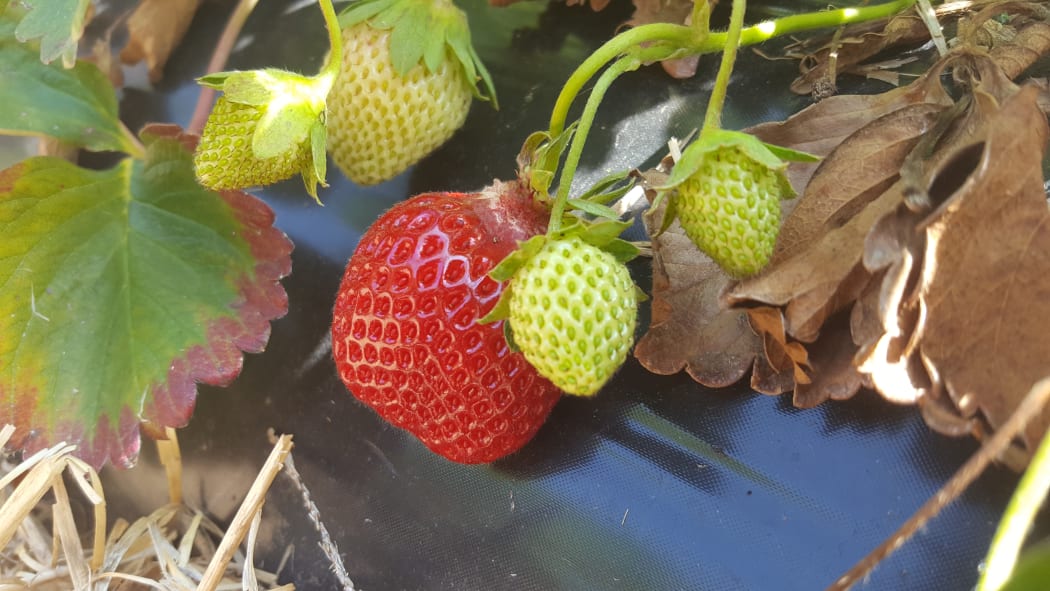
Photo: RNZ/Carol Stiles
The farmer we rang in Rangitikei says the rain will come and even though it's hard to get animals into the works, the China market will open up again. He managed to get 1000 lambs away - they were a kilo and a half back on where he would have liked and worth $1.50 less per kilo than they were in January. He's made the decison to feed lucerne to heifers with calves - it was set aside for the winter but with the price of palm kernel, he'll look at buying in feed later on, when, hopefuly it'll be cheaper.
A Wairarapa farmer says the region's edging towards a drought. Everyone he's spoken to is feeding out on both dairy and sheep properties. Sheep need to be kept in good order for tupping. Store prices have collapsed a bit but there's been rain in Kapiti and Otaki and a little in Manawatu so Wairarapa farmers are hoping there's market over the hill for their animals.
Nelson wine growers are happy with their lot . They and the grapes have been enjoying long, sunshiny days. Nets are out on early ripening varieties - pinot noir and pinot gris. Nelson's the fourth largest growing region in New Zealand and there's hope it'll produce 12 to 13 thousand tonnes of grapes this season . The grower we called says Nelson draws some great pickers from overseas - friends and family who have already been here spread the word about the beauty of the area, the weather, the reception they get from locals and the three National parks in the vicinity, Kahurangi, Nelson Lakes and the Able Tasman. On pastoral farms north of Motueka things are greening up a bit - 18 millimeters of rain fell on the 18th.
Marlborough's high country has had very hot, dry conditions. The farmer we spoke to farms south west of Blenheim and his farm ranges from 450 metres above sea level to 1500. He says the pasture's gone off and rain's sorely needed. Animals are faring ok as long as they have access to water. He'll be weaning his merino flock next week - later than most. He says everyone has their turn and this year it's the grape growers - they are gearing up for harvest. The season's been ideal - dry at the right time and plenty of rain early in the season.
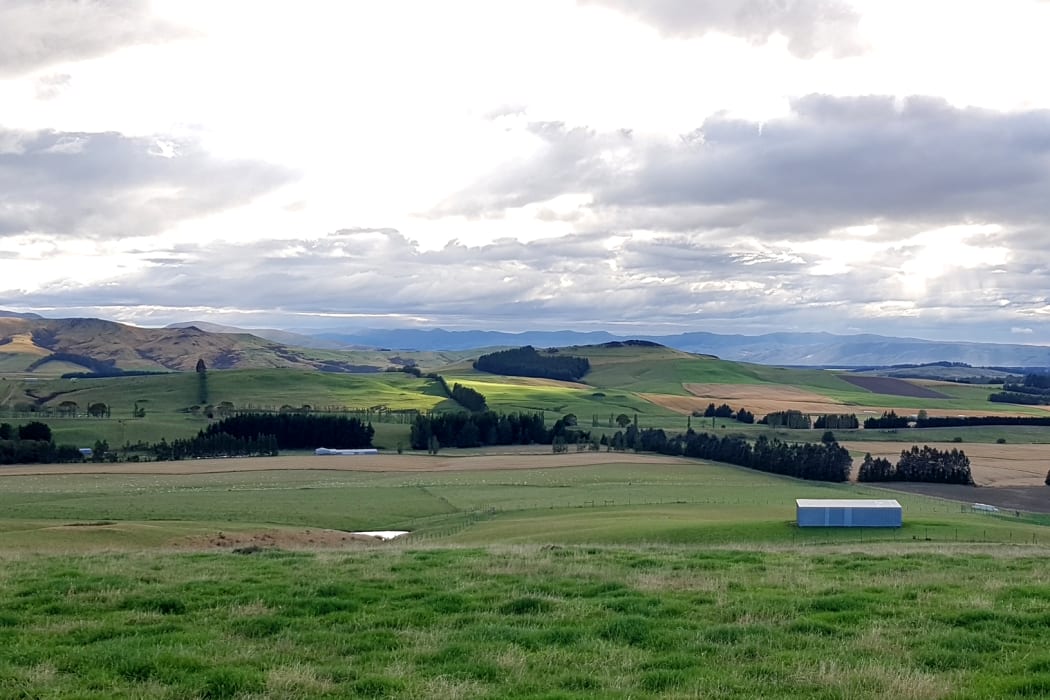
Photo: RNZ / Cosmo Kentish-Barnes
The West Coast's been quite pleasant really - our contact says there've been a couple of days where it's been hot and humid and he's wanted to sit in the shade but otherwise the temperatures have been in the early 20's. He farms in the tropical north - near Karamea and this week has welcomed 35 millimeters of rain He says the free irrigation has come a bit late but he'll' take it. Further south, farms have had more rain than they've needed but that hasn't been a disaster. The Grey Valley has been as dry as a chip - it doesn't get as much rain as elsewhere on the coast because it's inland and sheltered. If they're getting plenty of feed, cows are milking well. Our farmer's cows are having their diet topped up with distiller's grain and palm kernel.
Harvest is progressing well in Canterbury but, despite the dry weather, it has been quite slow because of overcast cooler conditions. Dryland areas are really battling and the ability for farmers to move stock to processing is extremely difficult. Hopefully some rain comes this weekend.
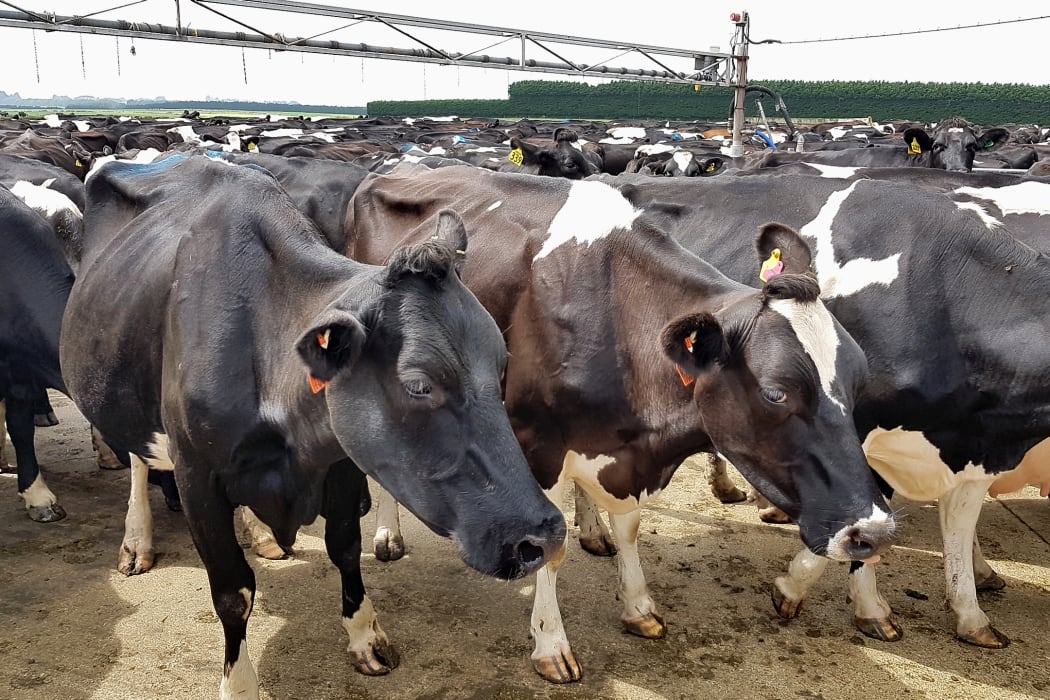
Photo: RNZ / Cosmo Kentish-Barnes
In inland North Otago things are looking good following 50 millimetres of rain two or three weeks ago - there's plenty of feed. Towards the coast it's tighter. On down country farms people have been busy harvesting grains and cereals. Eighteen-thousand fine wool lambs were up for sale at Omarama this week. Merino wethers were fetching between $120 and $130 which is back about $20 on last year. We're told the rural service industry is doing it really hard. There's low morale among farmers and so much uncertainty about looming regulations and compliance costs that people aren't spending.
Southland's the envy of the rest of New Zealand. It hasn't been too hot and is looking reasonalby lush. Recent floods created a headache around Mataura but, for a larger part of the region, the rain was welcomed. Milk production's even lifting.

